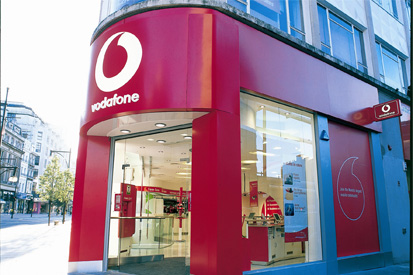
Vodafone's decision to rework its global brand identity is symptomatic of the challenge facing many multinationals - namely finding an encompassing approach that maximises the potential of both emerging and established markets.
As competition in the mobile sector intensifies, Vodafone has appointed WPP-owned branding agency The Partners to reassess its global brand guidelines. While the brand's typeface, logo and palette will remain the same, the project aims to bring greater consistency to the mobile operator's marketing efforts, which have become less clear following the exit of global brand director David Wheldon in March.
Nuanced position
At a global level, Vodafone's performance is complex. It has suffered declining revenues in European markets, while growing strongly in the BRIC countries and the Middle East.
Despite these nuances, Vodafone's decision to hire The Partners represents the latest step in its move toward a one-size-fits-all global communications strategy. The agency will now join Team Vodafone, which co-ordinates work by WPP for the mobile operator on an international basis. The economies of scale of such multi-country deals are clear, but there is a danger that valuable local insight will be lost to global consistency.
According to Ben Cusack, group marketing director at agency Mobile Interactive Group, Vodafone has its work cut out in continuing to deliver a brand identity and marketing strategy that can translate across different cultures, languages and markets. 'If you look at the companies that have the most consistent brand message globally - such as eBay or Amazon - they are online brands which have started out with a truly global footprint,' he says.
However, Jim Prior, managing director at The Partners, claims he has identified a shift in the relationship between international brands and their consumers. 'In the last 10 years we have moved from global strategy to thinking globally and acting locally,' he says. He now suggests brands should 'think globally and act individually'.
Yet, Jim Clark, senior technology analyst at Mintel, warns that Vodafone is going against the grain by implementing a global strategy. 'It is an odd move when you consider that other brands are targeting micro-niche communities of consumers, such as AOL with its hyperlocal news site Patch.'
Clark also points to the German market, where mobile operators have increased revenues using niche-targeted packages aimed at key groups of consumers, such as migrant workers. O2 has already imported this approach to the UK with the roll-out of its youth-oriented Giffgaff service.
Vodafone has yet to apply this level of local insight in the UK, where it has more pressing concerns. Insiders say the brand is still suffering the impact of losing out on exclusive rights to Apple's iPhone. In the fourth quarter of 2009 its UK revenue declined by 4.7% year on year. However, Cusack believes the mobile operator now offers the best array of smartphones on the market, including the iPhone. 'The challenge for Vodafone is to continue growing in established markets by growing its core base of business customers,' he adds.
Pendulum swing
Vodafone's attempt to bring greater consistency to its brand assets makes sense, especially following the launch of Everything, Everywhere, the combined Orange and T-Mobile entity. Yet, previous experience suggests any move to global marketing will eventually lose momentum and the pendulum will swing back to more local activities.
'The combined force of Orange and T-Mobile will put pressure on rival brands,' says Clark. 'Vodafone may focus on big branding campaigns such as the "Make the most of now", and a globally relevant corporate identity, but a shift to a value-led message could have more resonance in the UK.'
Vodafone clearly faces an intricate set of global marketing challenges, but it will take more than fresh brand guidelines to strike a balance between the competing demands of profit-hungry shareholders in established markets and the investment needed to build its brand in new territories.

